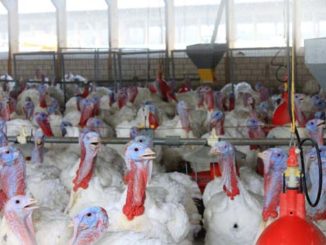In closing of the webinar TTIP and Antimicrobial Resistance (AMR), co-hosted by IATP and ARC2020, Shefali Sharma, IATP, cautioned that TTIP can potentially undermine progress made in combatting AMR on both in both the EU and USA, and highlighted that increasing AMR is a global problem. Shefali Sharma urged “people and organisations to find out more about this, to ask questions to policy makers, your elected officials on what is really happening with this and voice your concerns on TTIP and AMR.”
AMR is becoming one of the biggest public health threats, where antibiotics are no longer effective against bacteria. Margaret Chan, the Director General for the World Health Organisation, warns “A post-antibiotic era means, in effect, an end to modern medicine as we know it. Things as common as strep throat or a child’s scratched knee could once again kill.”
Steven Roach from Food Animal Concerns Trust outlined the growing problem of antibiotic resistance and highlighted that 80 % of antibiotic use is in the livestock sector. Antibiotic resistance is not a new problem, the US Food and Drug Administration already issued a report in 1968 expressing its concern with the growing problem of Antibiotic Resistance, and although pressure form public interests groups has been increasing to to something there has been resistance from the livestock sector and pharmaceutical companies. Although some progress has been made growth promoters the FDA’s current plans does not address sub-therapeutic use of antibiotics for disease prevention and farm practices that increase the need for antibiotics. There is a lot of resistance to change legislation on antibiotic use in the US, and generally speaking the US is about 10 years behind the EU in limiting use of non-therapeutic antibiotics in livestock production. Steve Roach expressed his concerns on how TTIP could affect current and future efforts on reducing AMR “If we go to the lowest common demoninator everyone loses”.
Richard Young, from the Sustainable Food Trust highlighted the issues relating to TTIP and AMR. The EU has since 1997 had a ban in place on antibiotics as growth promoters. Richard showed data, showing how bans and restrictions actually lead to less AMR, “What is important to note is that bans and restrictions on antibiotics it will lead to big falls in resistance.” Even though the EU may be ahead of the US in terms of steps to curb AMR, it appears that several key pieces of legislation such as the Veterinary Medicines Directive, the Medicated Feedstuffs Directive and an EU wide surveillance scheme monitoring AMR in live animals have been delayed for 2 years. Richard Young highlighted that although there could be many reasons for these delays, generally there is a reluctance to abnor the routine prophylactic use of antibiotics in healthy animals. “What we must really we must guard against with the Transatlantic Trade and Investment Partnerships is that we have a situation where they will be able to say they have banned growth promoters and unless we keep a close eye on this we’ll end up in a situation where in fact antibiotics are still being used in the same way, and this will very much dilute the whole concept of controlling antibiotic across the EU as well.”
In the final presentation, Shefali Sharma, IATP outlined what is at stake regarding TTIP and the issue of AMR. Three main issues are cross cutting: the lack of transparency in TTIP negotiations, regulatory coherence that seeks to set global standards for trade under the mantra of least trade restrictive, the investor state dispute settlement (ISDS) that would allow foreign investors to sue governments for rules or laws that undermine their expected profits. Shefali highlighted the importance of the chilling effect (regulatory chill) that TTIP can have current and future legislation and rules, preventing stronger laws and regulation on antibiotic use and how scientific uncertainty could be used to delay legislation. Interests from the livestock industry on both sides of the Atlantic are identical – to remove regulatory barriers to trade, and this can potentially have a substantial negative impact on efforts to curb AMR in the EU and USA. d AMR, Surged people to stay informed and get involved…and TTIP should be a key issue on your agenda.
The stakes are high on TTIP and how it will affect current and future rules on antibiotic use, Shefali Sharma recommended that people and organisations working with AMR, “ to stay informed and get involved…and TTIP should be a key issue on your agenda.”
Presentations
- TTIP and U.S. Food Animal Antibiotic Use, Steven Roach, FACT
- Farm Use of Antimicrobials and TTIP, Richard Young, Sustainable Food Trust
- Antibiotics and Regulatory Resistance in TTIP, Shefali Sharma, IATP
For more information
- Alliance to Save Our Antibiotics briefing “Antimicrobial resistance – why the irresponsible use of antibiotics in agriculture must stop”
- Antimicrobial Resistance Coalition Declaration
- Food Animals Concerns Trust
- Sustainable Food Trust
- Institute for Agriculture and Trade Policy






